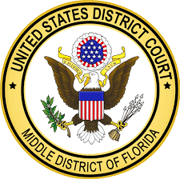Surgical Errors in Florida: Understanding Medical Malpractice
According to the Journal of the American Medical Association, medical negligence is the third leading cause of death in the United States, and in 2012, there was over 3 billion dollars paid out in medical malpractice cases nationwide. This means that there was roughly one claim paid every 43 minutes in the United States that year. Moreover, according to a study conducted by John Hopkins University, medical malpractice is responsible for more than 250,000 deaths per year in the U.S.
Unfortunately, the medical malpractice attorney at the Peck Law Firm has witnessed the devastation that severe acts of medical malpractice can have on both medical malpractice victims and their families. This is especially true of when the act constituting medical negligence occurs during a surgical procedure. As such, there are a few things about surgical errors that you should be aware of while you are evaluating any legal options that might be available to you as a victim.
Surgical Malpractice in Florida
As the medical malpractice statistics demonstrate, medical malpractice is more common than you might think, and one of the most common ways physicians and medical professionals commit acts of medical negligence is during surgical procedures. This type of medical negligence is commonly referred to as surgical malpractice, but in order to understand how surgical malpractice occurs, you need to understand some of the common legal principles associated with medical malpractice in general.
What Type of Conduct Constitutes Malpractice?
If a patient undergoes a surgical procedure and simply has a poor result, the poor result, in and of itself, does not necessarily mean that the physician who performed the procedure has committed malpractice.
In fact, even cases of negligent behavior will sometimes fail to rise to the level of medical malpractice. For example, in Holmes Regional Medical Center, Inc. v. Dumigan, 151 So. 3d 1282 (Fla. Dist. Ct. App. 2014) the Fifth District Court of Appeals (“5th DCA”) in holding that the defendant’s failure to remove medication that had previously been recalled from its inventory did not constitute medical malpractice stated “that the mere fact that a wrongful act occurs in a medical setting does not automatically transform the contested action into one that sounds in medical malpractice.“
The court went on to note that to constitute medical malpractice “the wrongful act must be ‘directly related to the improper application of medical services and the use of professional judgment or skill.’"
The court’s articulation of an act that constitutes an “improper application of medical services and use of professional judgment or skill” refers to the standard of care that doctors and medical professionals are required to exhibit when treating patients.
Florida’s Medical Malpractice Laws
Pursuant to Fla.Stat. § 766.102(1), in a medical malpractice claim, the plaintiff is required to demonstrate by the greater weight of evidence that the alleged actions of the physician or medical professional represented a breach of the prevailing professional standard of care for that health care provider.
Breach of Duty Care
This means that the conduct constituting malpractice must represent a breach of the normal amount of care that another physician would exhibit under similar circumstances, and consequently, the act must also be committed during the course of rendering medical care.
Holmes Regional Medical Center, Inc. v. Dumigan is a great example of the complexities of medical malpractice claims, as well as the gray area in the "requirement" that the wrongful act is directly related to the improper action.
In Holmes Regional Medical Center, Inc. v. Dumigan the plaintiff did not allege that the doctor who performed the surgery made a mistake or acted negligently. Rather, the allegation was that the defendant (hospital where the surgery was performed) failed to implement proper procedures for removing medication that had been previously recalled.
Almost five years after its initial holding, the case was brought before the 5th DCA again in 2022, at which time the appellate court reversed the trail court's granting of a directed verdict in favor of the hospital, and remanded the case for a jury trial to determine if in fact the hospital's actions constituted negligence and/or malpractice, despite the fact that they were not directly related to the improper action (administering the heparin post procedure).
Featured Case Summary
As demonstrated in Dumigan, the line between negligence and medical malpractice is not always clear, but it can said that generally medical malpractice sets a higher bar from an evidentiary standpoint than simple negligence.
Common Types of Surgical Malpractice in Florida
The central question that a victim of medical malpractice must ask is “did my doctor or medical professional do or fail to do an act during the course of my care that another physician would have done under similar circumstances.”
The cases involving surgical malpractice demonstrate instances where this question is easily answered, and some of the most common forms of surgical malpractice include:
Surgery on the Wrong Body Part
-
- When a patient goes to a hospital for an amputation, it is common for the staff to mark which limb will be amputated.
- In certain cases, the hospital staff will inadvertently amputate the wrong limb due either to marking the wrong limb or a clerical error in the surgical paperwork.
Improperly Administering Medication
-
- During a surgery, medications and anesthesia are commonly administered to a patient, but errors either in the type of medication administered, such as medication the patient is allergic to, or in the amount of medication administered can cause a patient to either sustain injuries or die as a result of the error.
Failure to Properly Clean Medical Tools and Equipment
-
- Hospitals commonly have multiple surgeries being performed each day, and prior to performing a surgery, the hospital’s staff is tasked with cleaning the medical equipment and preparing the surgical room for the next procedure.
- When a staff member or physician fails to properly clean the utensils used during a surgery, it can cause a patient to contract multiple illnesses due to bacteria.
Objects Left Inside a Patient
-
- Whether you realize it or not, doctors use objects such as sponges, clamps, and other types of materials to perform most surgeries.
- In some cases, these materials have been left inside a patient after the surgery has been completed thereby causing the patient to have to go through additional surgeries to have the materials removed.
Medical Malpractice Attorney in Spring Hill, FL
Being a victim of medical malpractice can be one of the most challenging experiences you and your family will go through in your lifetime, but you don’t have to go through this difficult time alone. At the Peck Law Firm, our medical malpractice attorney is dedicated to helping you seek the compensation you need and the justice you deserve.
So, if you think you have been a victim of medical malpractice, contact our office today for a free consultation.
FEATURED CASE | Holmes Regional Medical Center, Inc. v. Dumigan
In the case of Holmes Regional Medical Center, Inc. v. Dumigan, the legal issue centered around whether Holmes Regional Medical Center (HRMC) was negligent in its procedures for handling a recalled drug, heparin, which led to severe complications for Robert Dumigan following his cardiac bypass surgery.
Robert Dumigan and his family contended that the negligence of HRMC in adequately addressing the tainted heparin, which was recalled due to contamination, led to Dumigan suffering a severe infection that ultimately required the amputation of his left leg and right foot.
The plaintiffs did not claim that the medical staff provided substandard care in administering heparin during the surgery. Instead, they argued that the hospital's protocols were lacking in ensuring the proper removal of the recalled drug.
Ultimately, the court ruled to overturn the trial court's decision in favor of HRMC and ordered a new trial. This decision was based on the presence of conflicting expert opinions and unresolved factual issues surrounding HRMC's management of the recalled heparin, highlighting the need for a jury to resolve these matters.




